Sing Tao Probe | Students take on 9 true-or-false questions aout Article 23 legislation and the Safeguarding National Security Ordinance
This quiz features nine true-or-false questions related to the Safeguarding National Security Ordinance, including:
- Under the Basic Law, Hong Kong has had the constitutional duty to enact its own laws to safeguard national security since the handover.
- The offenses established under the Ordinance have retroactive effect.
- The Ordinance bill was unanimously passed by the Legislative Council after 25 meetings, 1,000 questions, and 91 amendments.
- During the one-month public consultation period for the bill, 70 percent of the public expressed support for the legislation.
- A Chief Superintendent can independently decide to extend the detention of a national security suspect by 14 days.
- Very few countries or regions in the world have laws safeguarding national security.
- The Ordinance was drafted with reference to numerous common law jurisdictions, where penalties are generally harsher than in Hong Kong.
- The Ordinance is a law designed to defend against external threats to our national security.
- The law targets only a very small number of extremists who engage in illegal acts with the intent to endanger national security or interests.
Watch how the students tackle these 9 questions (answers included):
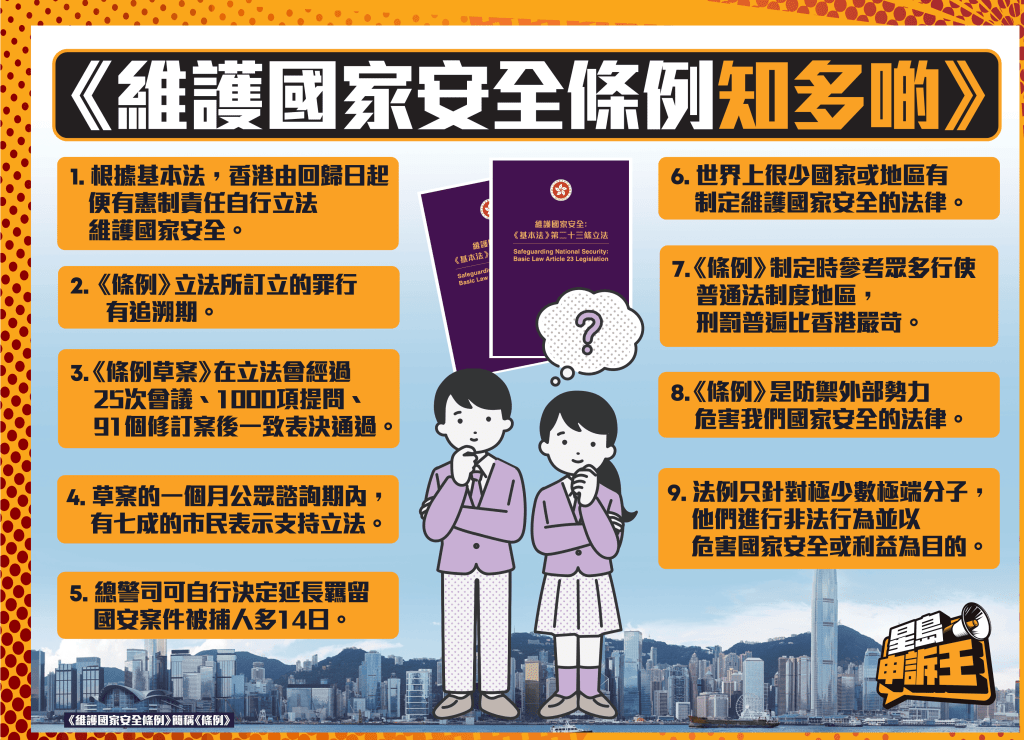
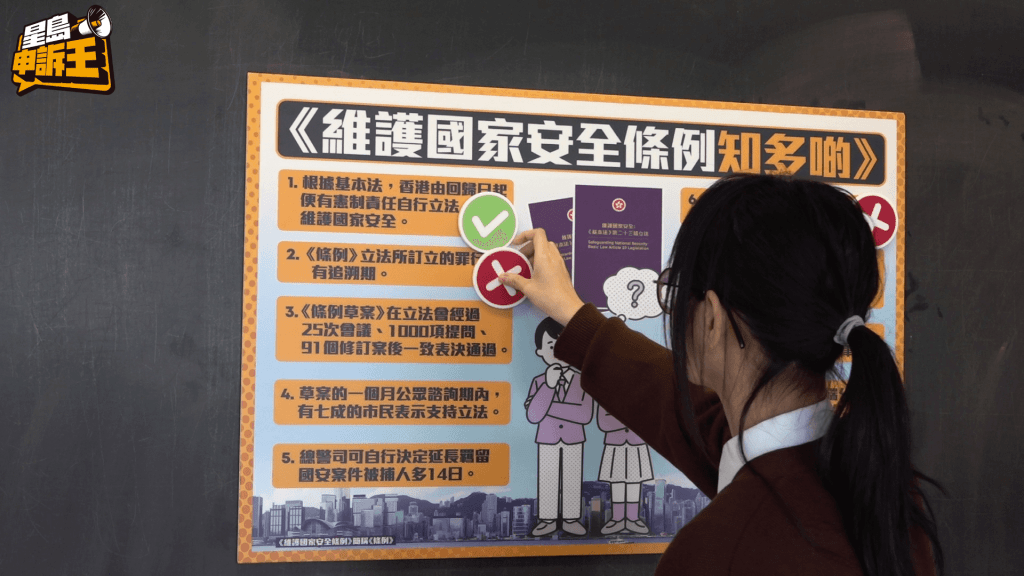
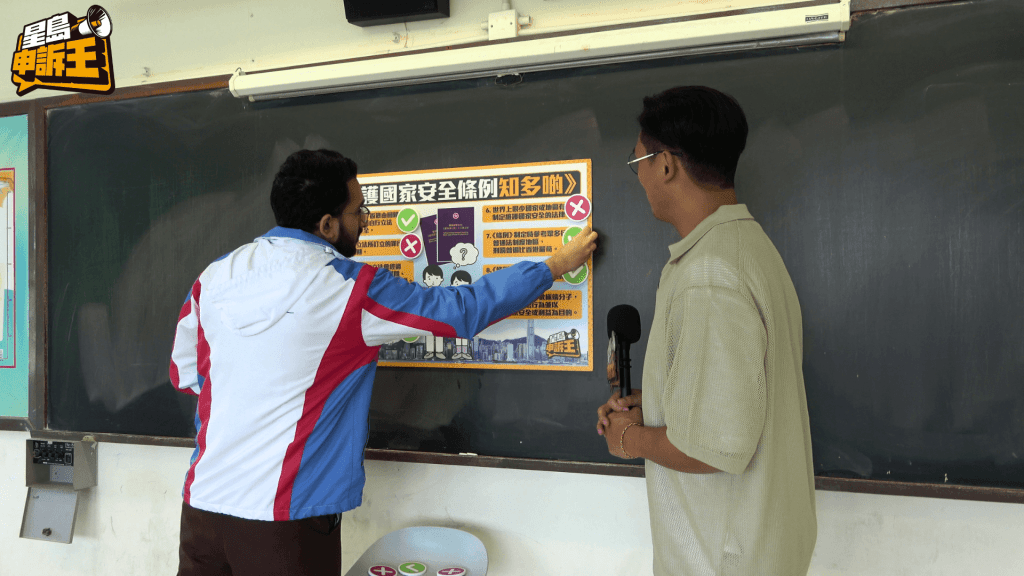
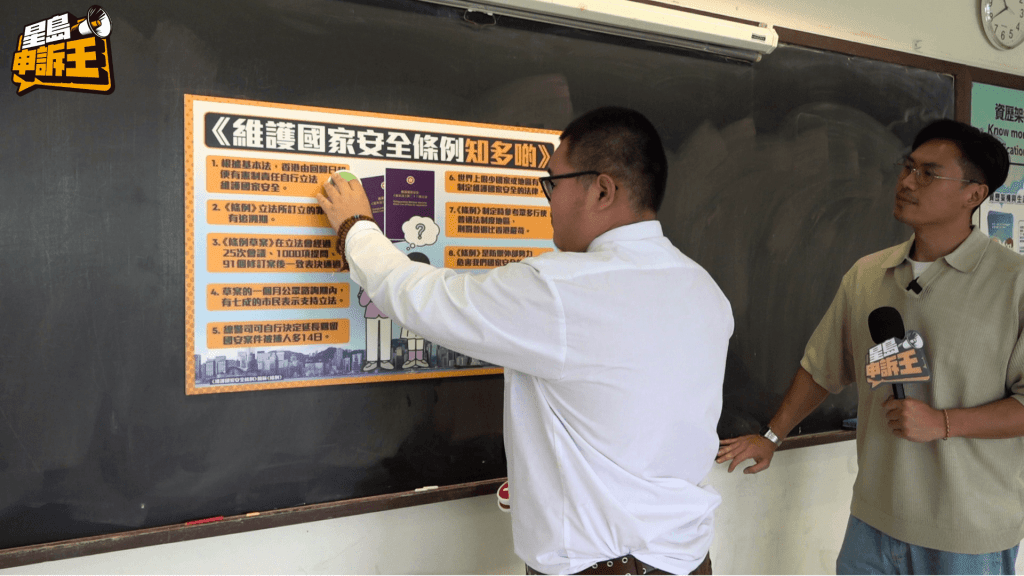
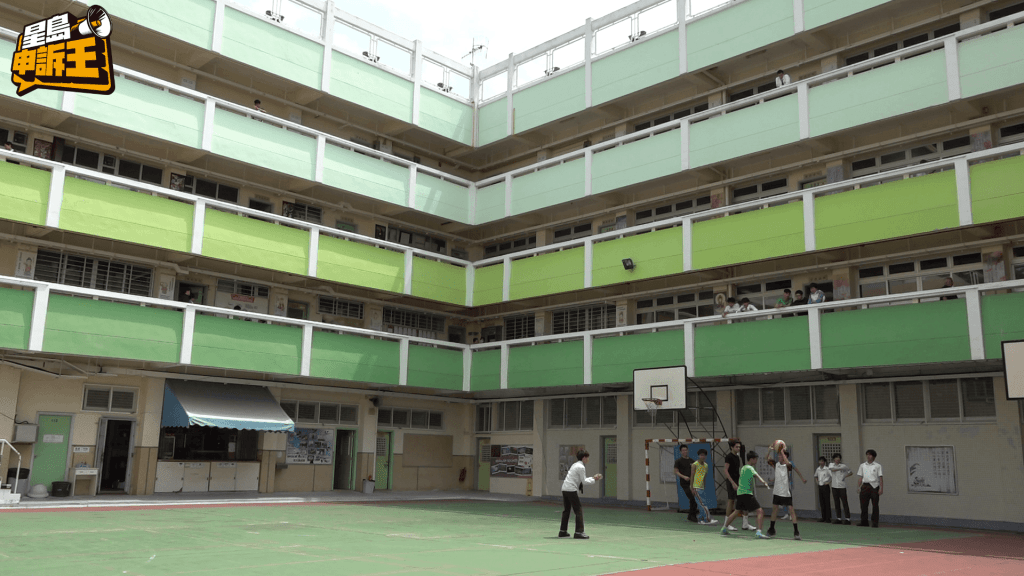
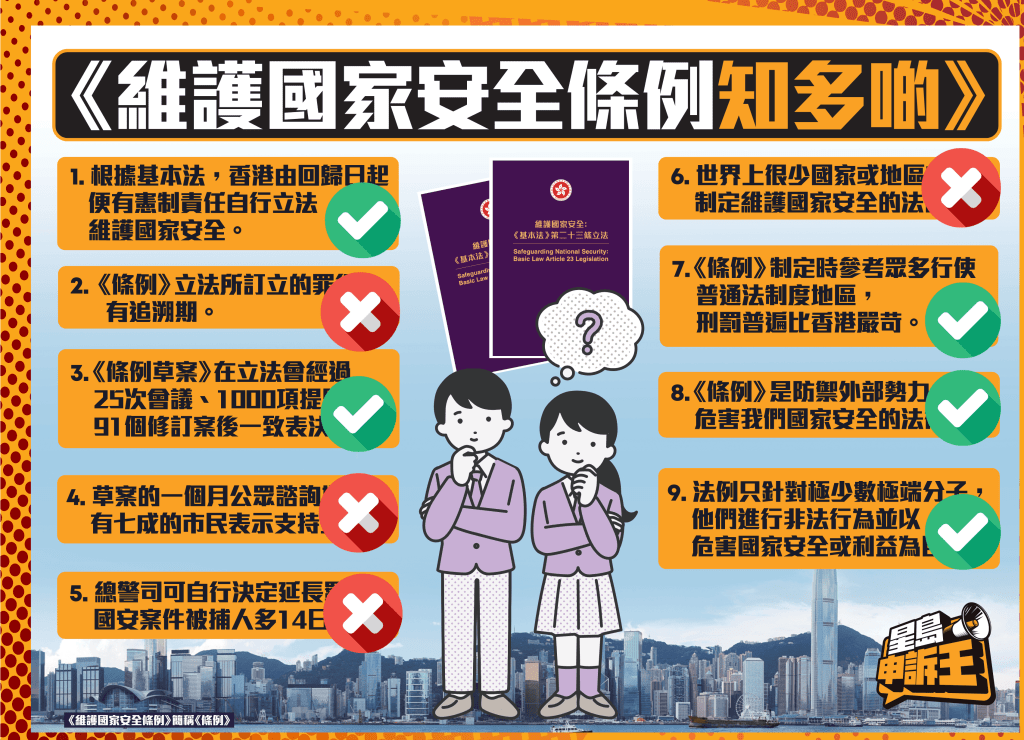
Students have some understanding of the new law but still have questions
During the quiz session, students showed some awareness of the new ordinance, with most obtaining information about Article 23 from YouTube and Civic Education classes. However, many still had concerns.
Leung, a Form 4 student, mentioned that certain numbers are considered sensitive in society, and he worries that merely mentioning them could lead to arrest or a police warning.
Kan, a Form 3 student, expressed concerns about discussing sensitive topics in public or debating cases related to subversion of state power with classmates, fearing it might violate Article 23.
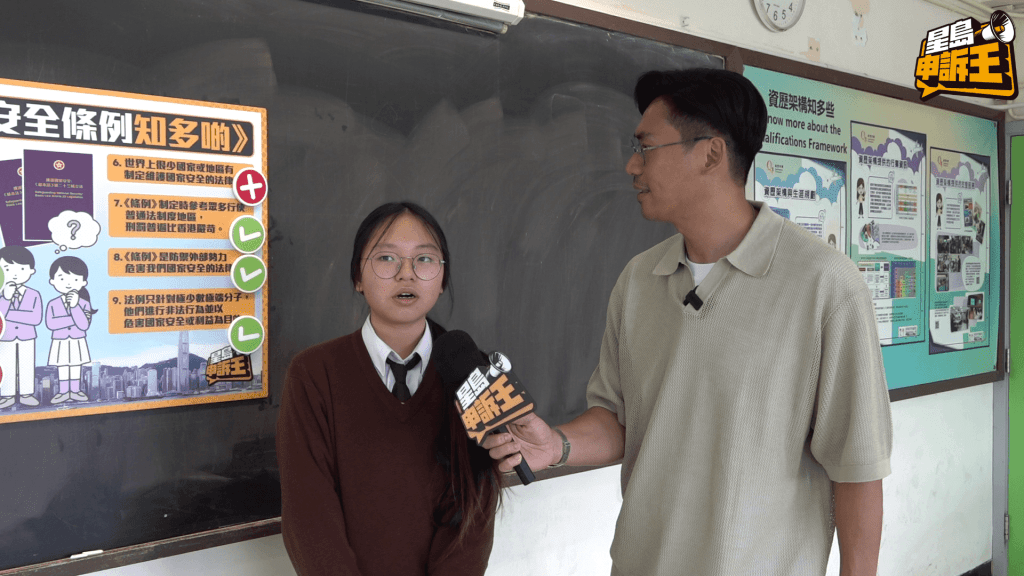

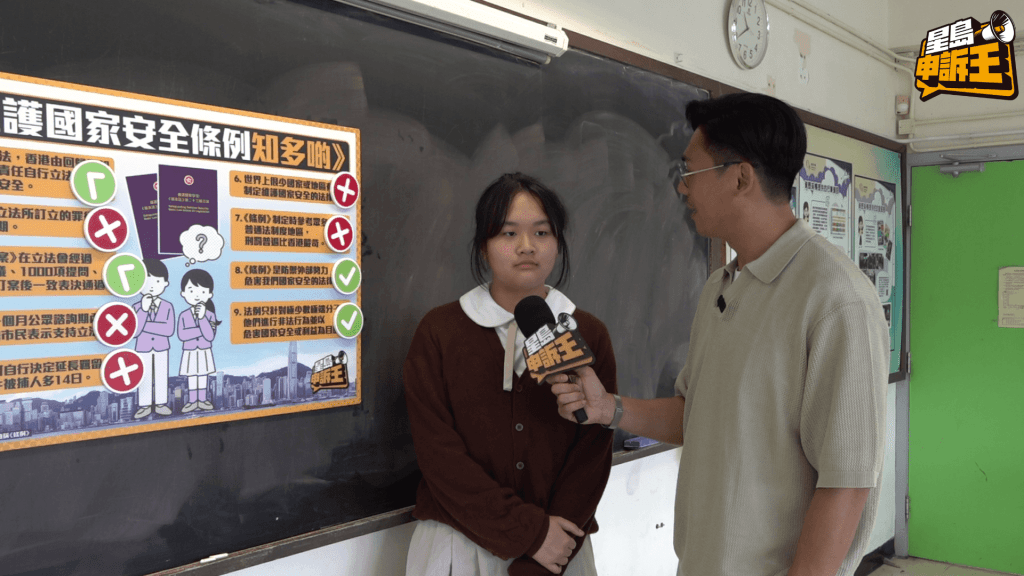
Constitutional Duty of the HKSAR Government to Safeguard National Security
The Safeguarding National Security Ordinance was unanimously passed by the Legislative Council and came into effect on March 23. The new law covers five categories of acts endangering national security:
- Treason and related acts
- Insurrection, incitement to mutiny, and seditious acts
- Theft of state secrets and espionage
- Sabotage endangering national security
- External interference and organizations engaging in activities that jeopardize national security
In an interview with Sing Tao Probe, legislator Doreen Kong Yuk-foon clarified that the commonly mentioned "Article 23" refers to the Basic Law Article 23, under which the HKSAR government has a constitutional duty to enact local legislation—officially named the Safeguarding National Security Ordinance (the Ordinance). She emphasized that the Ordinance is necessary, important, and urgent.
Kong said that other jurisdictions also have national security laws to protect their own countries, and it would be quite dangerous if Hong Kong lacked such legislation.
She noted that the offenses covered by the National Security Law differ from those under the Ordinance, explaining that the National Security Law is a national law implemented in Hong Kong, while the Ordinance is local legislation enacted by Hong Kong itself.
Kong believes the two can complement each other and are equally important in safeguarding national security.
Regarding whether citizens could easily violate the law by giving negative comments on Hong Kong's economic or social development, she clarified that there is no need for concern.
Criticism of government policies based on objective facts, constituting reasonable and legitimate opinions that identify problems and suggest improvements, would not amount to sedition.
Academic discussions among students in schools, for example, would also not violate the relevant provisions, and she emphasized that there is no need for undue worry.
Additionally, many citizens are concerned about potential offenses related to disclosing state secrets or external interference. She pointed out that state secrets are clearly defined, making it difficult to unintentionally commit offenses related to their disclosure.
As for external interference, she reassured that normal activities, such as exchanges with foreign organizations, would not be affected. She stressed once more that as long as there is no criminal intent or deliberate aim to endanger national security, it would not be easy to break the law.
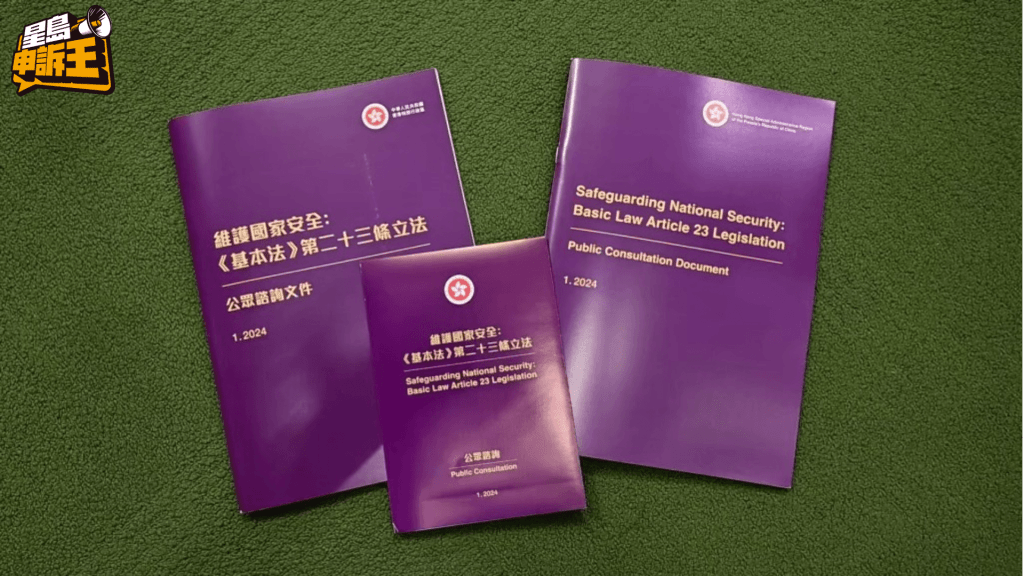


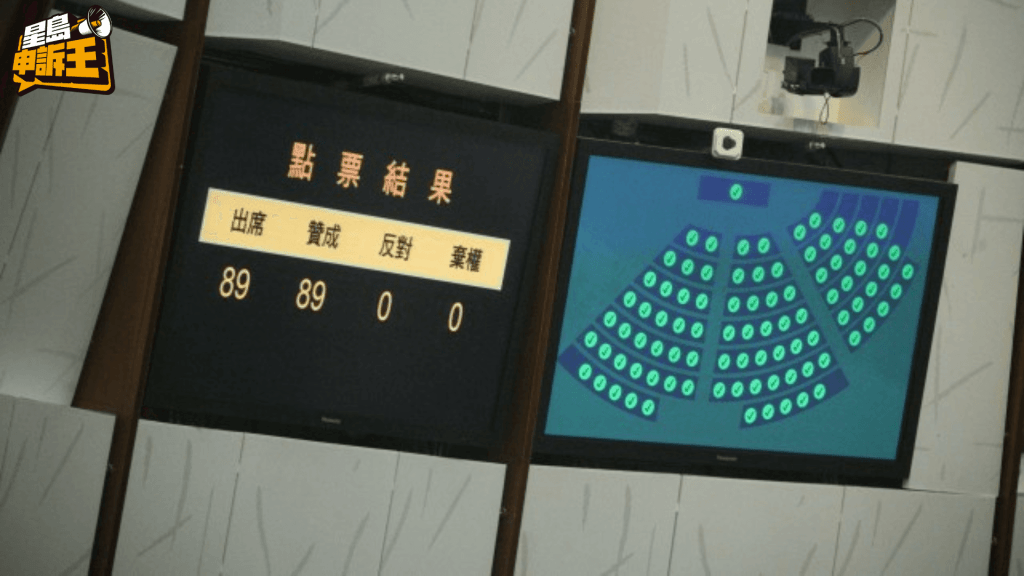
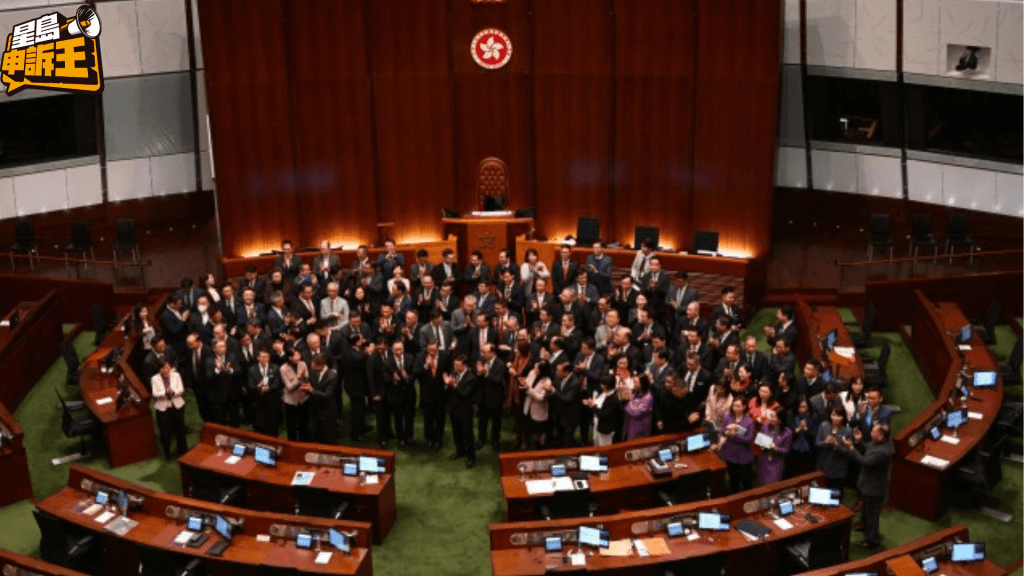
What is the "Three-Pronged Test"?
Secretary for Security Chris Tang Ping-keung said that offenses like "external interference" and "disclosure of state secrets" must meet the "three-pronged test" to be considered illegal.
Kong explained that the prosecution process is highly stringent, with the "three-pronged test" comprising: acting without lawful authority, conduct that is likely to endanger national security to a substantial degree, and the disclosed information meeting the definition of state secrets while demonstrating criminal intent.
Kong repeatedly emphasized that the Safeguarding National Security Ordinance is designed to prevent, stop, and punish those involved in offenses endangering national security, and she believes it will only affect an extremely small number of individuals.
For ordinary residents living in Hong Kong, their daily lives will not be impacted by this ordinance under normal circumstances, Kong added.



